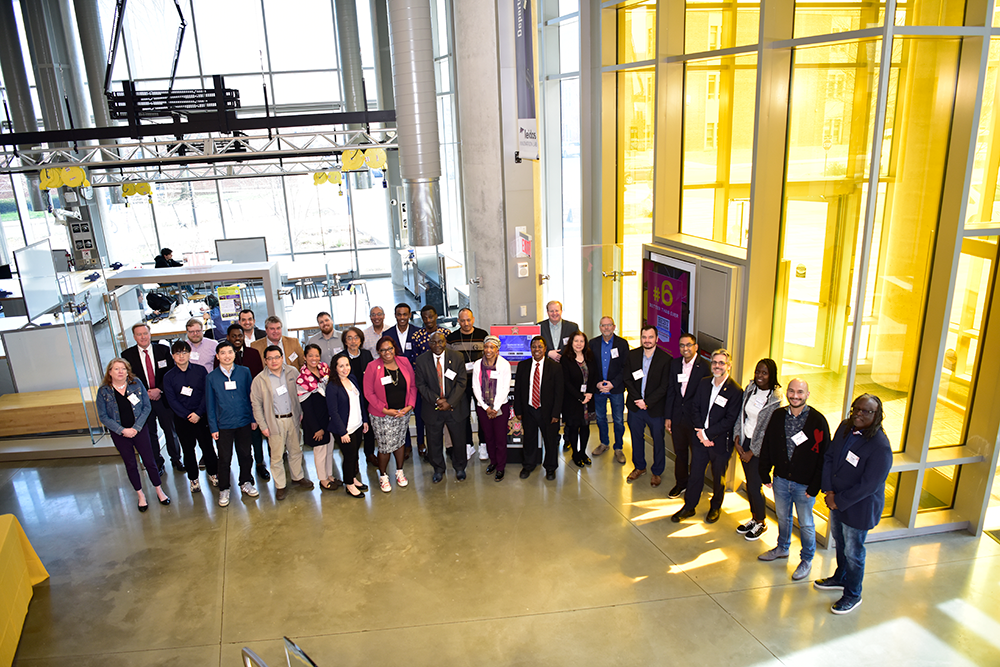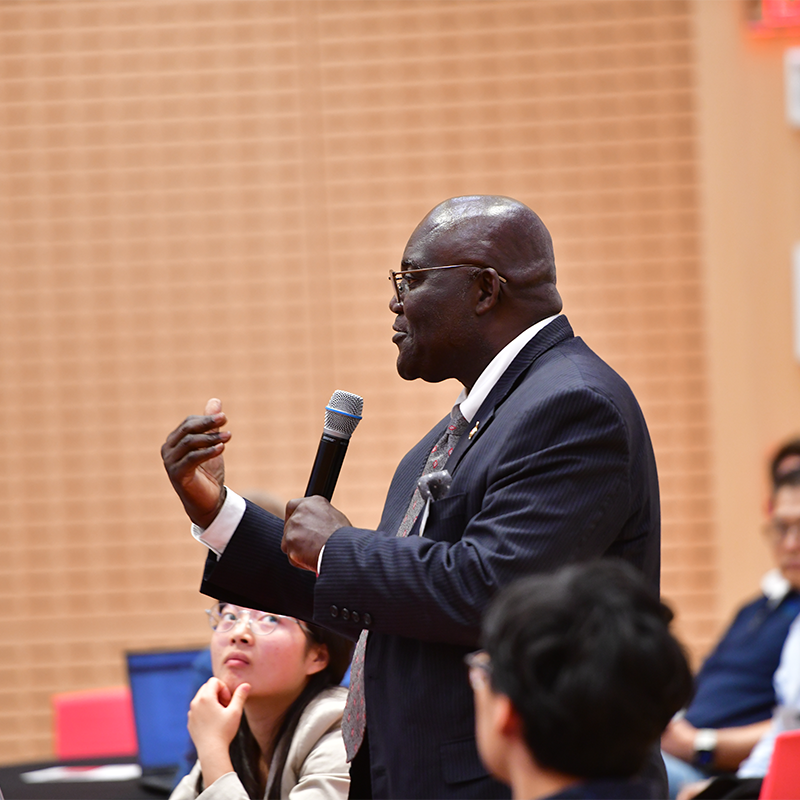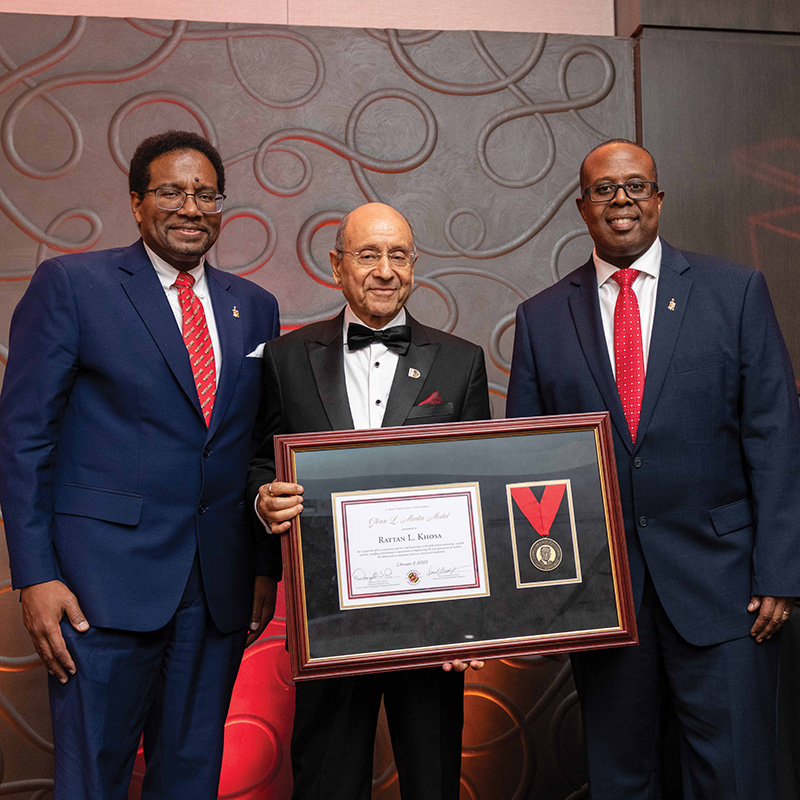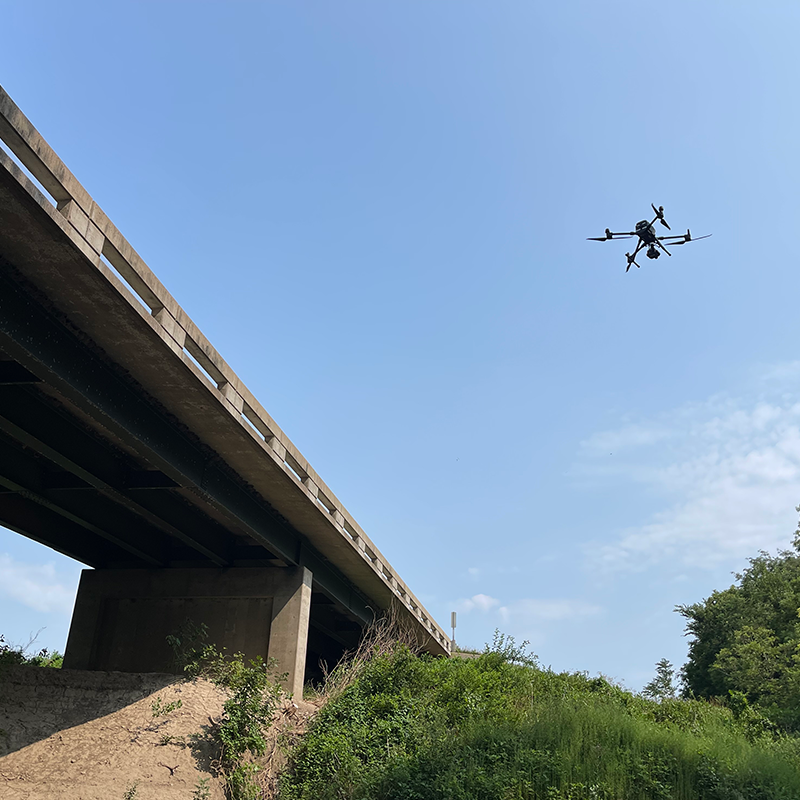News Story
Securing the Railways of the Future

Transportation engineers, railroad industry representatives, and officials from government agencies gathered at the University of Maryland’s (UMD) A. James Clark School of Engineering on March 7 and 8 for a groundbreaking event focused on digital technologies, including machine learning and AI, and how they could impact the railroad industry.
UMD’s Digital and Cyber Railway Engineering and Operations Center (DCREOC), based at the civil and environmental engineering department, hosted the two-day event, which included a conference and a short course.
Nii Attoh-Okine, chair of the department and director of the DCREOC, chaired the event, which was designed to equip stakeholders to leverage the opportunities and understand the risks posed by railway digitalization.
The short course featured six modules covering specific topic areas, from data and privacy protection to the growing role of AI, as well as a series of workshops in which you can exchange ideas with peers and distinguished subject matter experts.
Speakers at the conference included faculty members from the Air Force Institute of Technology, Howard University, the University of Delaware, UMD, the University of Missouri, the University of South Carolina, the University of Tsukuba.
They were joined by representatives from the Federal Railroad Administration; the Qatar Transportation and Traffic Safety Center; the Center for Multi-Modal Transportation Studies, Lagos Nigeria; Global SOS Network; UMD’s Center for Advanced Transportation Technology Laboratory; Canadian Pacific; ENSCO; MITRE; and MxV Rail.
With the event having proved a success, the DCREOC now intends to host it annually. Details about the 2025 conference and short course will be announced this summer.
"The digital transformation of railway engineering and operations holds great promise," said Attoh-Okine. “At the same time, it opens up a host of security concerns. Industry, government, and other stakeholders have a shared interest in mitigating these concerns. To do so, they will need to draw on the expertise of trained engineers and cybersecurity specialists, as well as on academic research.
"This conference and short course provided an opportunity for stakeholders to identify what the needs are, and then to help draw up a roadmap for addressing them. We hope to provide many more such opportunities in the future."
Published March 25, 2024









